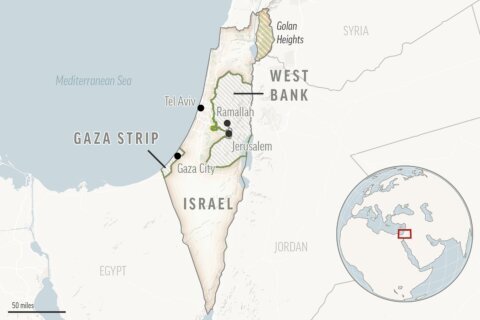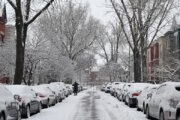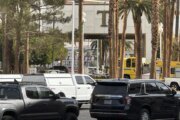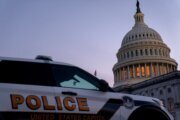LA PAZ, Bolivia (AP) — Former President Evo Morales of Bolivia claimed he survived an assassination attempt on Sunday after unidentified men opened fire on his car. He was not injured in the alleged attack that quickly became the latest flashpoint in a power struggle between the ex-leader and his protégé-turned-rival, current President Luis Arce.
Morales, 65, blamed President Arce’s government for the outburst of violence, saying it was part of a coordinated campaign by Bolivian authorities to sideline him from politics. The incident coincides with a bitter rift at the highest rungs of the ruling Movement Toward Socialism, or MAS. Morales and Arce, his former economy minister, are fighting to lead the party into next year’s elections.
“This is not an isolated incident,” the Morales-aligned bloc of the divided MAS party said in a statement. “It’s clear evidence that we are facing a fascist government that does not hesitate to attack the life of former President Evo Morales.”
The statement said that two vehicles with heavily armed men dressed in black ambushed Morales’ convoy. Bullets whizzed just “centimeters” from the ex-president’s head, it said. Video posted on the website of Morales’ radio station showed helicopters buzzing over an airstrip where the incident occurred.
President Arce condemned the attack and requested an investigation.
“The exercise of any violent practice in politics must be condemned and clarified,” Arce wrote on social media platform X. “Problems are not resolved by trying to kill people or by partisan speculation.”
Deputy Security Minister Roberto Rios insisted that police had not acted against the former president. He said authorities were investigating a theory that Morales had staged “a possible self-attack,” citing allegations swirling within the government that Morales had directed the assault on himself to help his own political fortunes.
“Morales is seeking confrontation and violence on the streets for political interests and to achieve impunity,” Rios told reporters.
The flurry of pointed accusations threatened to ignite Bolivia’s political tinderbox and plunge the cash-strapped Andean nation of 12 million further into turmoil.
Morales alleged the shots were fired while he was being driven in Bolivia’s coca leaf-growing region of Chapare, his rural stronghold whose residents have blockaded the main east-west highway for the past two weeks in a show of defiance and solidarity after new legal threats against Morales emerged. Last month, local prosecutors summoned Morales to testify in a revived child abuse case that the former president dismissed as politically motivated.
The roadblocks and rallies over the past days have choked off major cities and disrupted supply lines, raising fears of food and gasoline shortages.
Under pressure to clear the highways, Arce’s government on Friday deployed thousands of security officers in a failed attempt to break up the blockades by force.
Officials said protesters drove away police by hurling explosives in clashes that left 14 officers injured, while 40 demonstrators were arrested. Morales said members of a far-right paramilitary group pulled his lawyer, Nelson Cox, out of his jeep and beat him.
The events revived fears of a return to the political violence of 2019, when 36 people were killed in violent turmoil that engulfed the country after allegations of electoral fraud sparked an uprising that ended when Morales resigned and fled.
In the years since, the leftist icon, who served as Bolivia’s first Indigenous president from 2006-2019, has made a stunning comeback, drawing thousands to his rallies across the country.
As Morales’ popularity has grown, so, too, has the government backlash. Arce on Saturday said that Morales poses “a serious threat not only to Bolivia, but to stability and security in our region.”
That the political rivalry between the erstwhile allies could morph so quickly into mayhem on the streets is a measure of how brittle Bolivia’s democracy remains years after Morales’ ouster, decried by his supporters as a coup.
On Sunday, Morales went on his weekly radio show to recount the attack on his convoy, appearing unscathed and calm. He told the radio host that as he was leaving home, hooded men fired at least 14 shots at his car, wounding his driver.
“Arce is going to go down as the worst president in history,” Morales said, describing the attack as part of a conspiracy by Arce’s government to drive him out of politics.“Shooting a former president is the last straw.”
As cellphone footage spread online showing Morales’ driver bleeding from the back of his head, his supporters called for mass rallies to show their anger. In the video taken from inside the car, Morales can be seen in the passenger’s seat holding a phone to his ear as the vehicle swerves and a woman’s voice shrieks, “Duck!”
The footage shows the car’s front windshield cracked by at least three bullets and its rear windshield shattered. Morales can be heard saying, “Papacho has been shot in the head,” into his phone, referring to his driver.
Even before the shots were fired, the country’s political atmosphere was rife with personal attacks and at times violence.
In June there was an attempted coup by a rogue general who later accused Arce of orchestrating the uprising to boost his own flagging popularity. Arce denies being behind the coup.
Last month, in a show of political strength, Morales and his supporters set off on a highly anticipated dayslong march to La Paz, the capital, in an effort to pressure Arce to address dire shortages of fuel and dollars.
Imported goods are scarce. Prices are rising. Drivers wait for hours to fill up at gas stations.
The September march, which also called for authorities to let Morales run in the 2025 presidential contest despite the constitutional court barring him, devolved into street clashes with counter-protesters.
Earlier this month, Bolivian prosecutors launched an investigation into accusations that Morales fathered a child with a 15-year-old girl in 2016, classifying their relationship as statutory rape. Morales has refused to testify in court.
Since reports circulated of a possible warrant against him, the ex-president has been holed up in the Chapare region, in central Bolivia, where loyalist coca growers have kept watch to prevent his arrest.
——
DeBre reported from Buenos Aires, Argentina
Copyright © 2025 The Associated Press. All rights reserved. This material may not be published, broadcast, written or redistributed.







